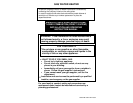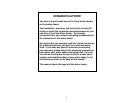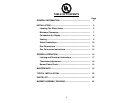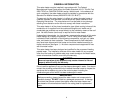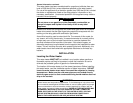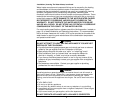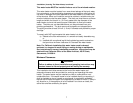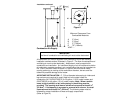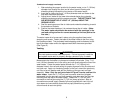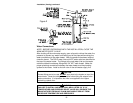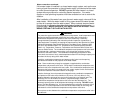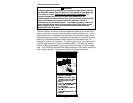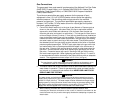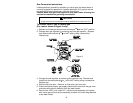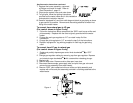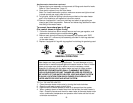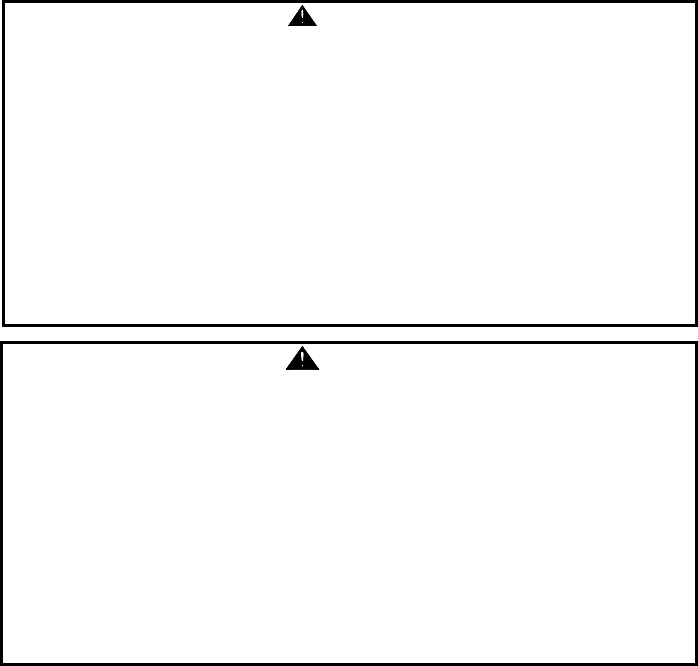
6
Installation (Locating The Water Heater) continued-
Water heater corrosion and component failure can be caused by the heating
and breakdown of airborne chemical vapors. Examples of some typical
compounds that are potentially corrosive are: spray can propellants, cleaning
solvents, refrigerator and air conditioning refrigerants, swimming pool
chemicals, calcium and sodium chloride, waxes and process chemicals. These
materials are corrosive at very low concentration levels with little or no odor to
reveal their presence. NOTE: DAMAGE TO THE WATER HEATER CAUSED
BY EXPOSURE TO CORROSIVE VAPORS IS NOT COVERED BY THE
WARRANTY. DO NOT OPERATE THE WATER HEATER IF EXPOSURE
HAS OR WILL OCCUR. DO NOT STORE ANY POTENTIALLY CORROSIVE
COMPOUNDS IN THE VICINITY OF THE WATER HEATER.
For exact venting specifications, please consult the Venting section, located on
page 10, of these Installation and Operating Instructions. It is recommended
that a minimum clearance of 4 inches (10.2 cm) be provided on the side of the
water heater for servicing and maintenance of the combination temperature
and pressure relief valve.
WARNING
DO NOT ATTEMPT TO LIGHT ANY GAS APPLIANCE IF YOU ARE NOT
CERTAIN OF THE FOLLOWING:
• Liquefied petroleum gases/propane gas and natural gas have an odorant
added by the gas supplier that aids in detection of the gas.
• Most people recognize this odor as a “sulfur” or “rotten egg” smell.
• Other conditions, such as “odorant fade” can cause the odorant to
diminish in intensity, or “fade”, and not be as readily detectable.
• If you have a diminished sense of smell, or are in any way unsure of the
presence of gas, immediately contact your gas supplier from a neighbor’s
telephone.
• Gas detectors are available. Contact your gas supplier or plumbing
professional for more information.
WARNING
Liquefied petroleum gases/propane gas are heavier than air and will remain at
floor level if there is a leak. Basements, crawl spaces, closets and areas below
ground level will serve as pockets for accumulation of leaking gas. Before
lighting, smell all around the appliance area for gas. Be sure to smell next to the
floor.
IF YOU SMELL GAS:
• Do not try to light any appliance.
• Do not touch any electric switch; do not use any telephone in your building.
• Immediately call your gas supplier from a neighbor’s telephone. Follow the gas
supplier’s instructions.
• If you cannot reach your gas supplier, call the fire department.
DO NOT OPERATE APPLIANCE UNTIL LEAKAGE IS CORRECTED!



